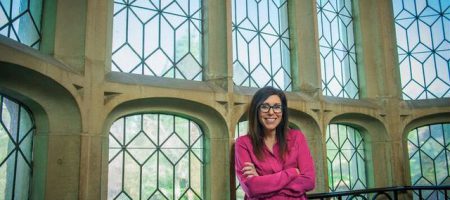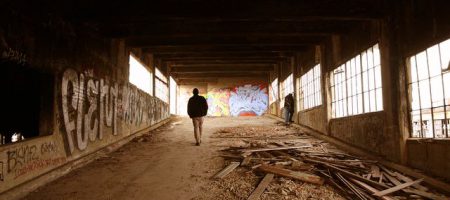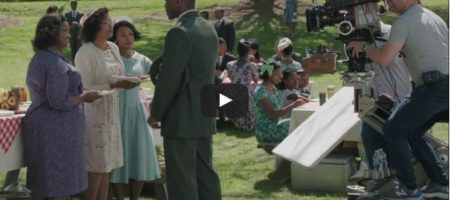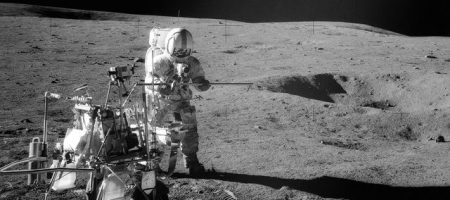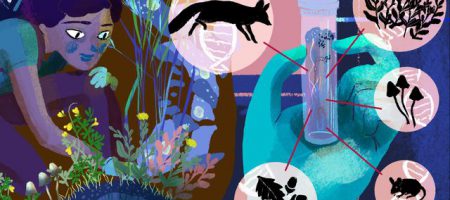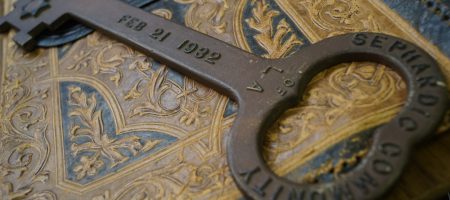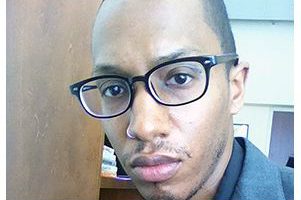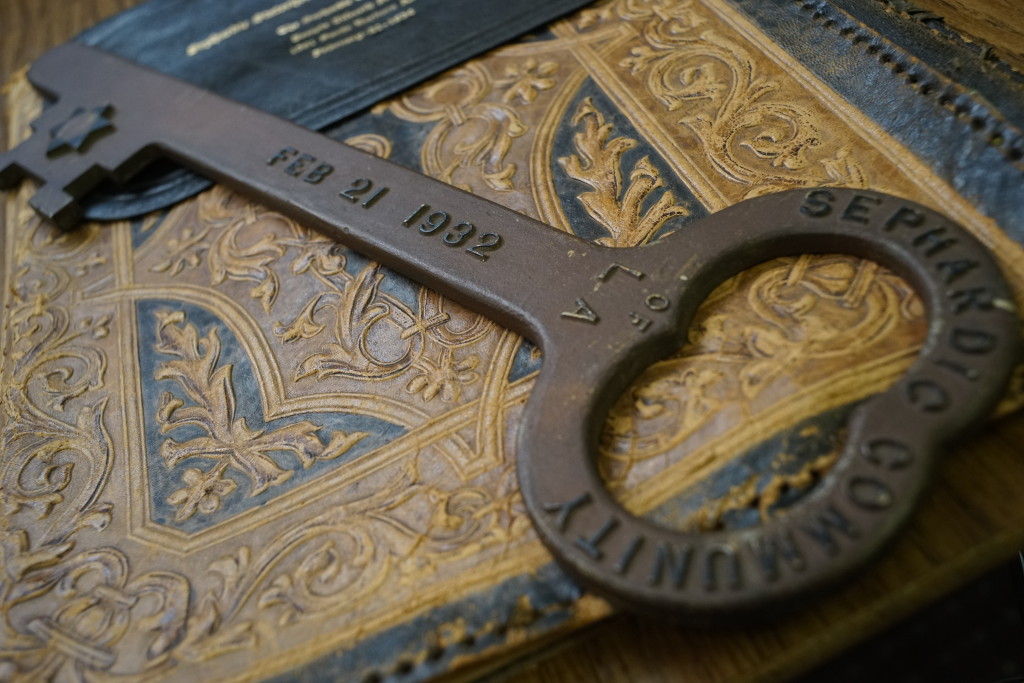
Symbolic key from the 1932 dedication of L.A.’s Temple Tifereth Israel (courtesy of STTI Archive)
The UCLA Sephardic Archive has acquired one of the most significant collections ever assembled chronicling Los Angeles Sephardic Jewish history. The materials tell of the migration of Sephardic Jews to California from the Mediterranean, Middle East and North Africa at the turn of the 20th century; the shaping of Sephardic culture in Los Angeles; and Sephardic Jews’ contributions to the Jewish and urban fabric of L.A.
Marking its first major acquisition, the archive partnered with UCLA Library-Special Collections to acquire the Sephardic Temple Tifereth Israel (STTI) archive, which includes a rich trove of photographs, papers, audio-visual materials and rare books dating to the mid-19th century. Many are written in the endangered language of Ladino (Judeo-Spanish), the language of Mediterranean Jews descended from the medieval exiles from Iberia.
Launched in 2015, UCLA’s Sephardic Archive is the first of its kind in the U.S. and aims to be one of the world’s largest collections—as yet unseen—of Sephardi Jewish life. An early focus will be on the local Ladino-speaking community, whose immigrant pioneers came to L.A. from modern-day Turkey and the Balkans in the early 20th century. The archive will then be expanded to include L.A.’s North African, Persian and other Middle Eastern Jewish communities.
“UCLA is the ideal institution to safeguard and steward a collection of such enormous significance,” said Sarah Abrevaya Stein, director of the archive, professor of history and holder of the Maurice Amado Chair in Sephardic Studies. “We are in L.A., which is home to one of the oldest and largest Sephardic communities in the country, and we have the world-class resources to pioneer a comprehensive and invaluable archive of Sephardic culture.”
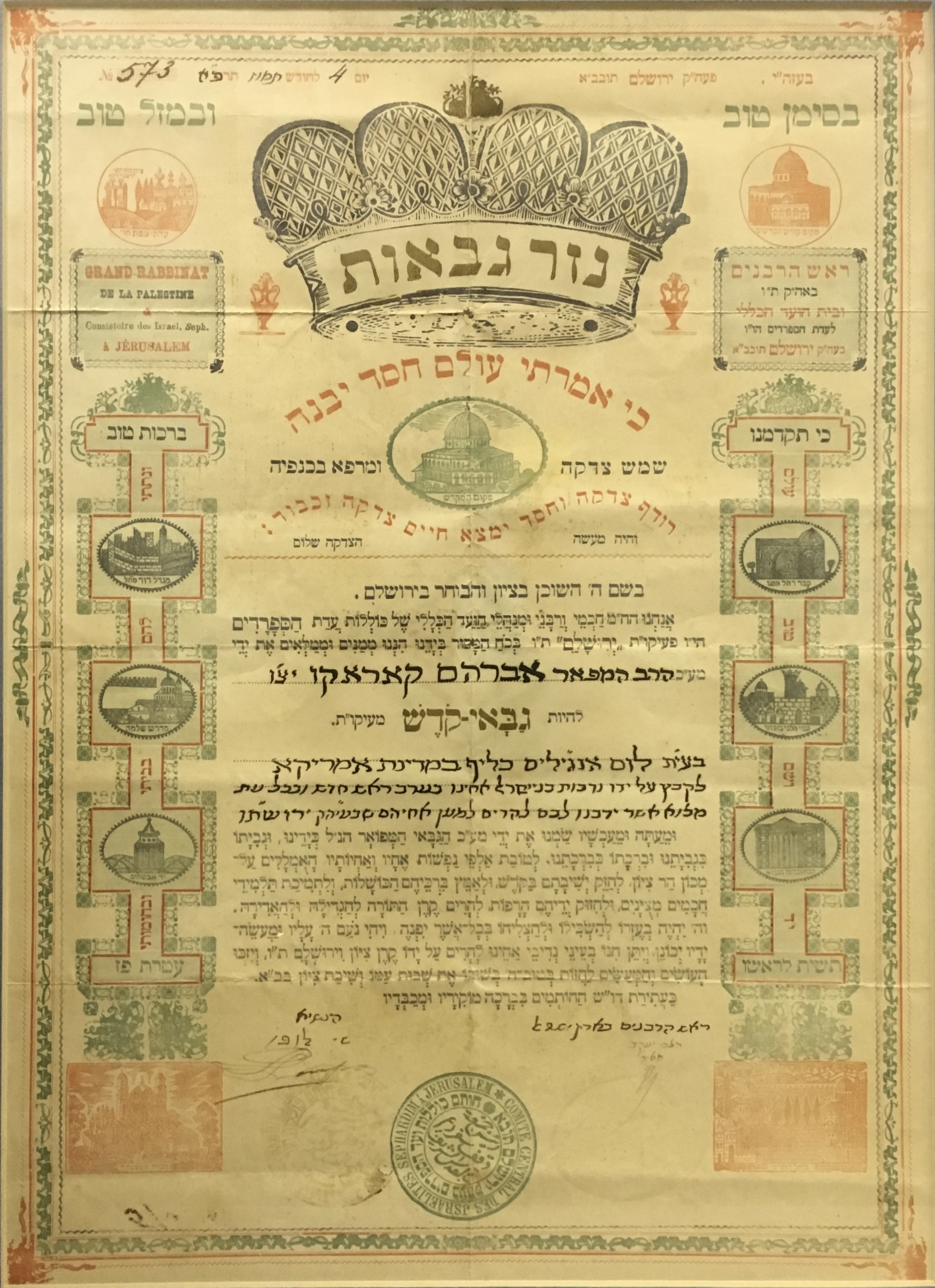
Jerusalem rabbinate’s 1912 recognition of the L.A. Sephardic Jewish community (courtesy of STTI archive)
Most archives and libraries dedicated to preserving documents and objects of the Jewish past have focused on European Jewish histories. In contrast, UCLA’s archive will span the southern Mediterranean and Middle East. Made possible by a lead gift from the Sady Kahn Foundation with additional support from the UCLA Alan D. Leve Center for Jewish Studies Community Advisory Board and the Maurice Amado Foundation, the archive complements UCLA’s unparalleled academic expertise and course offerings related to the study of Sephardic Jewish history.
Chris Silver, UCLA doctoral student in Jewish history and the archive’s project manager, said that the recent acquisition of the STTI archive would launch UCLA’s efforts in the most meaningful way, given its connection to the local community (the Temple is located on Wilshire Boulevard in Westwood). The STTI archive was created in 1981 and stewarded by Maurice I. “Bob” Hattem, a descendant one of the earliest founders of the Sephardi communidad in L.A. The diverse collection includes institutional records, research papers, newsletters, pamphlets, scrapbooks and newspaper clippings. The archive also possesses an impressive audio-visual collection of reel-to-reel, cassette and VHS tapes.
According to Stein, time is of the essence. “Materials held in these collections can be acutely vulnerable and at risk of being lost forever—often languishing in garages and other facilities ill-equipped for preservation,” she said. “It is imperative to collect, preserve and make them available for scholars and members of the community.”
The UCLA Sephardic Archive hopes to reverse the historic neglect of these primary source materials.
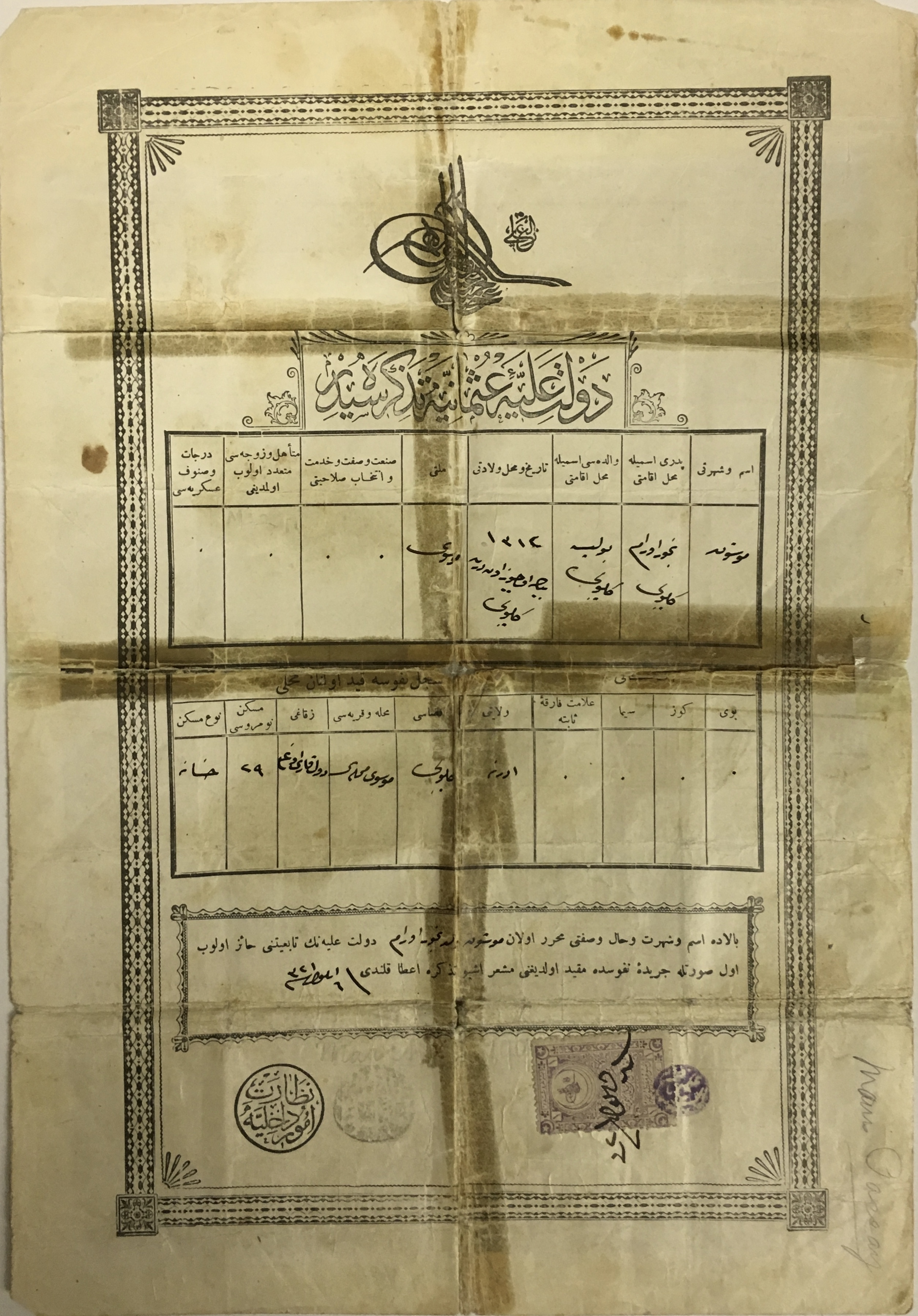
19th-century Ottoman birth certificate of a Sephardic Temple congregant (courtesy of STTI Archive)
Michael Hattem, son of Bob Hattem and member of STTI and the archive’s community advisory board, said, “The partnership between STTI and UCLA will keep the rich heritage of Sephardim alive for generations to come.”
After gathering and cataloguing the materials, Stein and her researchers plan to create a visually rich and historically informative interactive exhibit available online to users all over the world. The digital exhibit will be accompanied by a temporary physical exhibit at the Sephardic Temple featuring items drawn from the STTI archive and marking the community’s centenary anniversary. Finally, the archive will serve as a research resource for UCLA graduate students writing their dissertations on related topics and for community members interested in learning more about their past.
To learn more, please go to the archive’s webpage.


